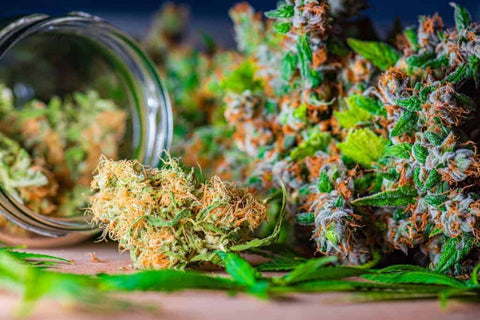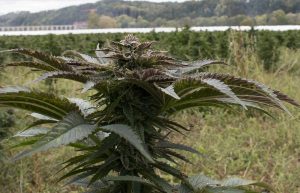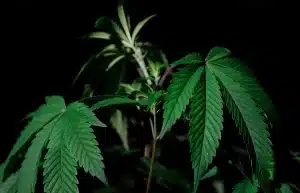The terpenes present in the cannabis plant are directly responsible for the aroma as for the flavor of the flowers you consume. In addition, several recent scientific studies, demonstrate that these cannabis terpenes also play a complementary symbiotic role with the different phytocannabinoids contained in the plant, especially in terms of effect.
During this article, we bring you everything you need to know about the importance of presence and influence Different cannabis terpenes.
WHAT ARE THE CANNABIS TERPENES?

This is a subject that currently raises many questions within the international cannabic scene, with a certain relevance. From the point of view of a chemist, cannabis terpenes are simply made up of a chain of molecular repetition called Isoprene of 5 carbon. This molecular profile acts directly on the aromatic and taste properties of all the plants that produce them. But not only, because it has recently been discovered that terpenes are able to generate beneficial symbiotic interactions with the phytocannabinoids present in the plant of cannabis.
We can evoke here the phenomenon ” entourage “, As has already been observed as part of the analysis of a multitude of varieties with various and varied cannabinoid profiles. Nowadays, the antagonism of CBD On THC is something that has been clearly demonstrated in a scientifically formally formal way. More clearly, this means that if a variety of cannabis contains THC Like CBD, even in unequal proportions, CBD has the capacity to cancel the effects produced by THC. It seems incredible, and yet it is a fact.
All this to make you understand that according to the profile of phytocannabinoids and terpenic contained by any cannabis plant, the perfume, the taste as the effects will be oriented according to the composition of the latter. All this generates interactive mechanisms between these different elements, which make it possible to obtain strong variations concerning the properties mentioned. It is concretely this great diversity, which offers us multiple possibilities and whose different virtues are still to be discovered.
We are talking about terpenes here cannabis, but in reality, we can find these same terpenes in many foods intended for humans, and in particular in fruits, vegetables, spices and aromatic herbs.
-The there are 3 major categories to classify phytotoTepens:
1) Primary monoterpenes: they are made up of 2 isoprene units, in other words, two blocks of 5 units. The most famous monoterpenes are myrcene, alpha-pinène (a-pinène), lemonène, beta-caryophyllene (β-caryopphyllene), terpinolène and ocimène.
2) Secondary terpenes or sesquiterpenes: they are made up of 15 carbon atoms. The sesquiterpenes that we find most often in cannabis are hull (delta-3-carène), karyophyllène oxide, fenchol, humulne, linalool, eucalyptol, bisabolol, nerolidol (or Péruviol), Alpha-Phellandrene (A-Phellandrene), Camphene, Beta-Pinène (β-pinène), Alpha, Beta and Y-Terpinène (A- β-y-terpinène), Farnesène or even Terpinéol.
3) The tertiary terpenes or those found in small quantities in the cannabis plant are: Borneol, Guaiol, Cederene, Camphre, Phytol, Geranyle acetate, Pulegone, Cymene and Isopulegol (Menthyle acetate).
WHAT IS THE ROLE OF TERPENES FOR THE CANNABIS PLANT?

The production of terpenes of a cannabis plant is always concentrated in the flowers of the latter. Which is completely logical, because the flowers are in a way “the precious fruits” of the plant. Terpenes, in addition to phytocannabinoids which are also located and produced in the same place, that is to say inside glandular trichomes, have a protective function against potential threats from bacteria, fungi, insects or many other factors of environmental stress.
The concentration as well as the composition of the terpenic profile expressed by each plant vary strongly, depending on cultivated genetics and associated culture parameters. In addition to their repellant action against the various scourges mentioned above, terpenes are also used to attract pollinating insects, thus facilitating the reproduction of the plant world. For the same genetics, there are different factors that can lead to certain variations during the production of these compounds such as: the climate, the duration of the maturation period, the fertilizers, the substrate and also the time of the day during which the harvest is performed.
All this lets us understand that the terpenic composition of a cannabis plant is almost unique, depending on the observation of these different variations. However, the aromatic profile of a set of plants from an identical variety, demonstrates strong similarities and therefore allows the concrete identification of the cultivated variety. This offers us such a result, because the terpenic combination between parents of the same genetics is strongly marked, such as a characterized olfactory imprint. This is the reason why we can easily distinguish a Amnesia Lemon of a L.A. Vanilla Cake, For example.
TERPENES AND CANNABINOIDS: A FUSIONAL RELATIONSHIP.
Many people convicted that cannabis terpenes are directly involved in the production process of cannabinoids, considering that the latter are made up of blocks of terpenes and groups of phenols.
A correlation between the level of terpenes and cannabinoids would have been found, during a study carried out using standard culture conditions. This is what could explain the strong presence of monoterpenes, like its ses which are formed and stored inside the glandular trichomes in which cannabinoids are produced.
HOW TO GET THE ESSENTIAL OILS OF CANNABIS?

We can get cannabis essential oil using a traditional steam distillation method. The latter passes through vegetable matter, driving the essential oil of the cannabis plant because terpenes are soluble in water, unlike cannabinoids. This is the reason why at the time of distill cannabis, by removing only the terpenes, the essential oil ultimately obtained will not produce any psychoactive effect.
The protocol is quite simple, because it is enough to place the cannabis in a test tube with water, and then heat it so that the water turns into steam at a temperature of 100 ° C. In this way, the terpenes are captured and then transported by steam to a second glass test tube, in which it will be cooled and liquefied again. In the liquid state, the essential oil collected and containing the terpenes floats above the water, thus facilitating the separation of the two liquids.
It is necessary to know that it is necessary to have a large quantity of cannabis flowers, in order to finally obtain a fairly modest amount of essential oil. This is what can explain its high cost as its low availability on the market.
WHAT ARE THE DIFFERENT APPLICATIONS OF CANNABIS ESSENTIAL OIL?
Cannabis essential oil can be used for:
- Aromatherapy or as part of the development of various and varied cosmetic products (creams, lotions, soaps, massage oils, etc.)
- Improving the aromatic, taste qualities, also optimizing “the entourage effect” of your flowers and cannabic extractions.
- The development of various edible products (drinks and foods).




